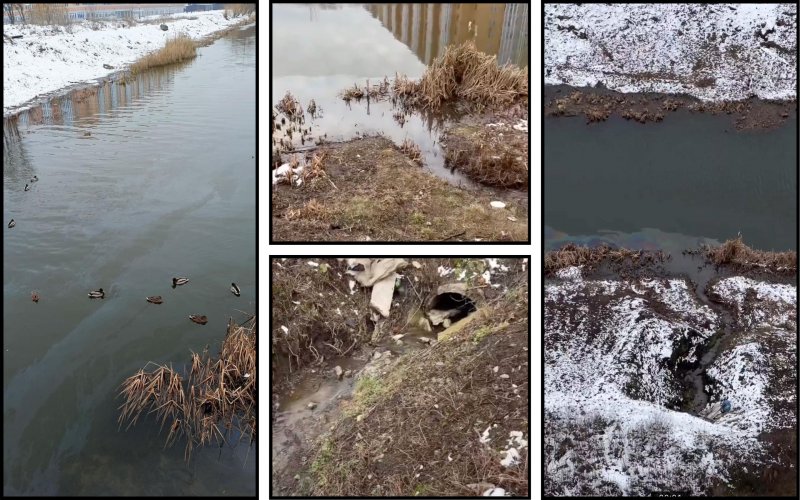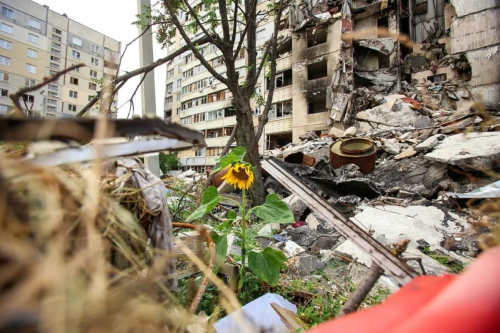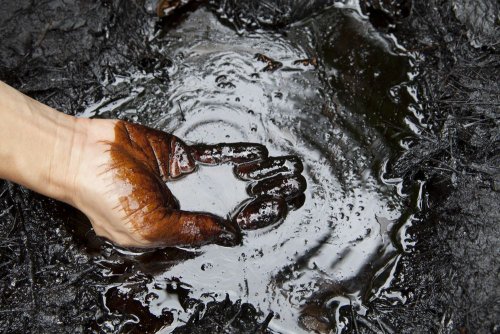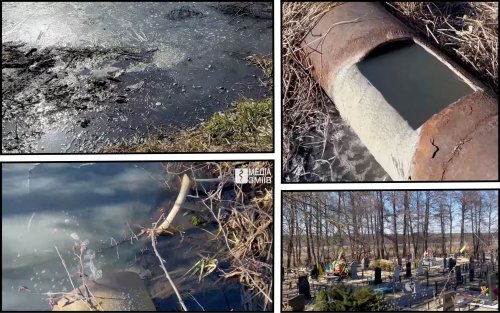On Saturday, February 24, a leak of oil products into the Lopan River was noticed in Kharkiv near the Central Market.
The oil products were leaking through pipes and were not the result of an enemy attack on the Kharkiv oil depot on February 9, environmental activist Artem Prykhodko wrote on Facebook.
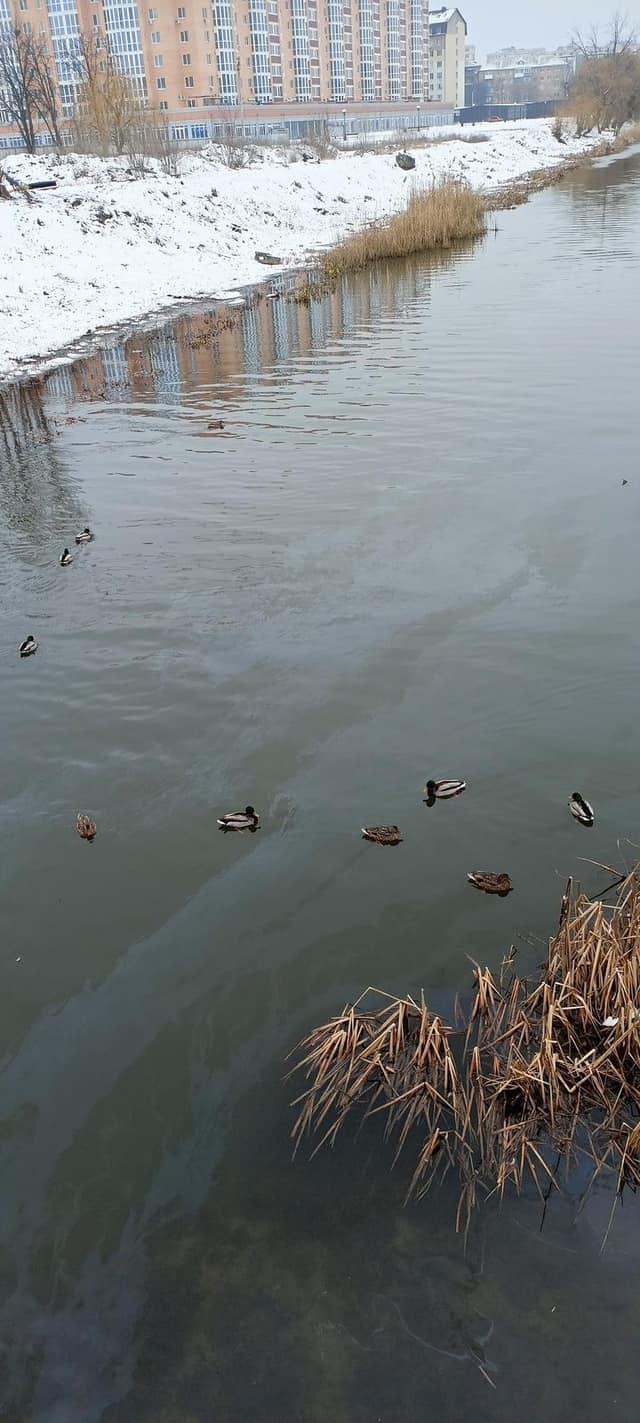
"Someone decided to add more fuel to all this horror under the sound of an ecological disaster," he wrote, adding that an appeal to the State Environmental Inspection would not make sense.
Prykhodko emphasized that this situation arose due to the inactivity of the responsible bodies, corruption and the Soviet mentality. As well as outdated approaches to the work of institutions and bureaucracy.
He called for a radical change of the system.
"In addition to oil products, the river is clogged with construction and household waste. I saw with my own eyes how trucks take garbage with snow directly into the river. The city authorities see the river only near Strilka park," wrote user Khrystyna Sazonova.
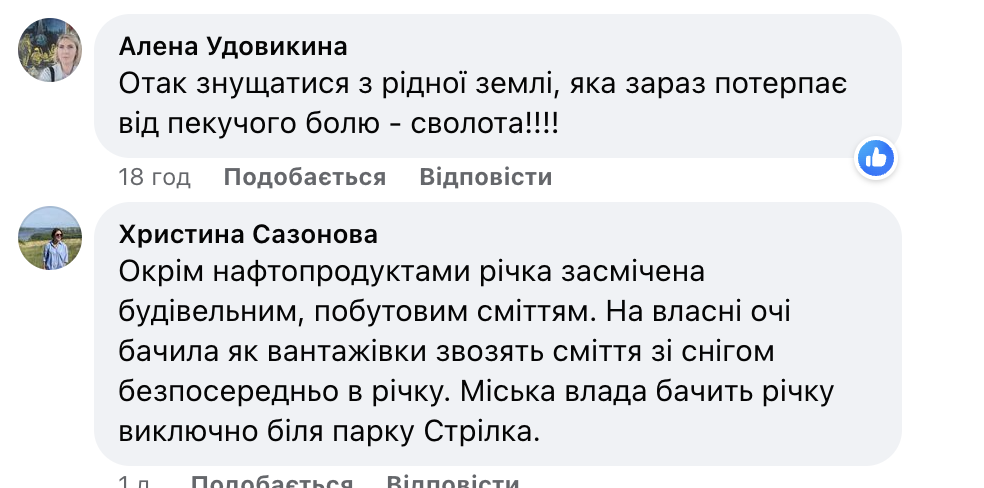
Eco-activist Ruslan Aksyonov emphasized that all Kharkiv rivers are in bad condition due to systematic careless treatment of them.
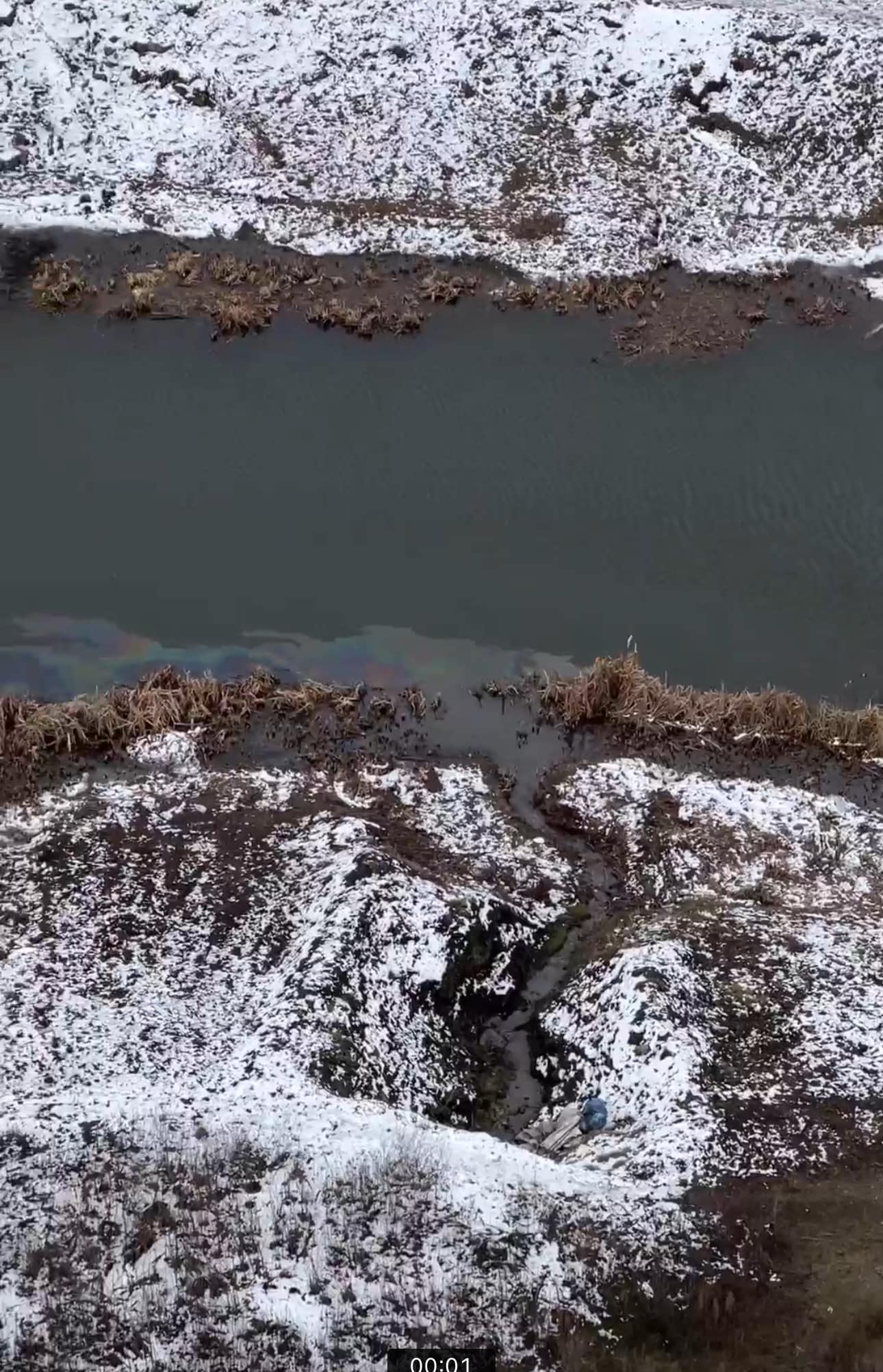
"Awareness will come when Rogansk water becomes unfit for drinking, like all wells and springs, and with them Shestakivska and Chuguivska. When they start bringing it from the center of Ukraine and selling it at 300 hryvnias per liter, that's when, maybe, awareness will come, or maybe it won't come," he wrote.
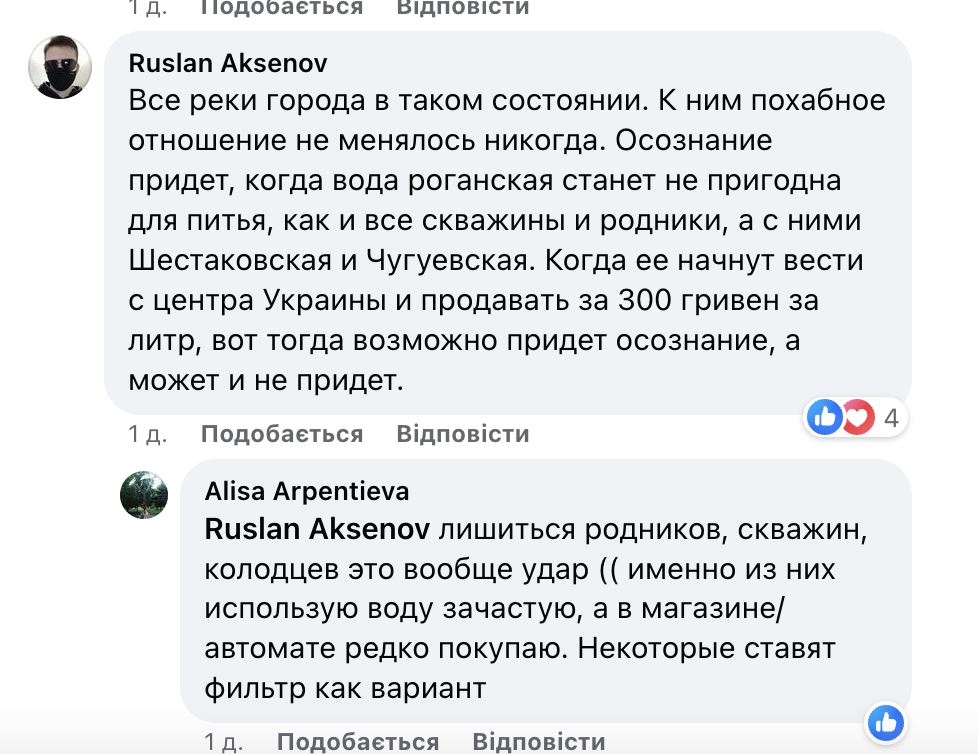
Earlier, EcoPolitic wrote, that eco-activist Artem Prykhodko said that in Kharkiv on February 15, they began effective cleaning of rivers from 3,000 tons of oil products, which got into the environment as a result of enemy shelling of an oil depot on February 9. It was possible to stop the spread of oil stains thanks to the simultaneous use of protective barriers and sorbents.
As EcoPolitic previously reported, the Ministry of Environmental Protection and Natural Resources issued an Environmental Impact Assessment (EIA) report to "Agro-Market" LLC regarding the construction of a tank for in Kharkiv. The sanitary protection zone of the future enterprise >was reduced from 700 meters to 400 from the river and 180 from residential buildings.

